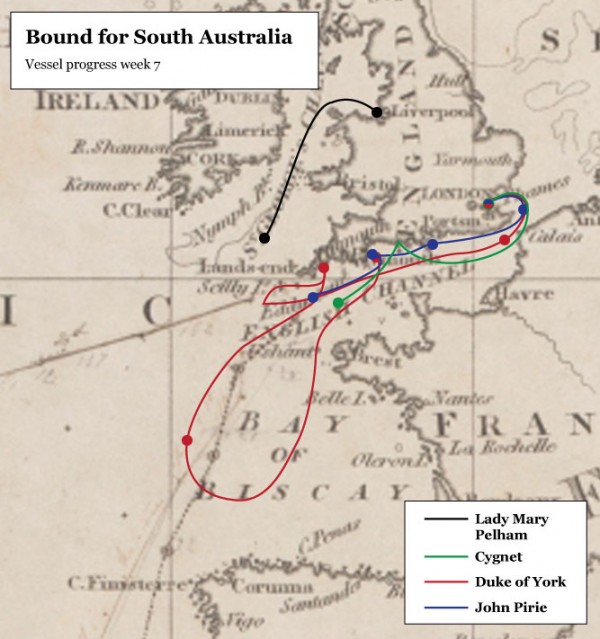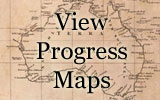After six weeks of bad weather and no progress, all of the travelers were unhappy. The passengers on the John Pirie were still suffering the after effects of the terrifying storm, (one left the ship at Dartmouth never to return,) while the captain and crew saw about extensive repairs to the ship. There was also general dissatisfaction with the quality of the stores on board.
Captain Morgan of the Duke of York had troubles of a different nature. Fed up with all the delays, during which they had received no pay, his crew refused to work unless he agreed to pay them ‘monthly wages’. Evidently they had agreed to sail in exchange for a share of the whaling catch, a common arrangement at the time, but there was little chance of whaling until the passengers were delivered to Kangaroo Island – a far-off prospect. Captain Morgan faced a very serious situation indeed. In the extracts below you will read two accounts of the incident, one written by Morgan himself and the other by Captain Martin of the John Pirie, who went to Morgan’s aid. They give us a clear picture of the delicate balance of power on board these ships and the many challenges captains faced on long sea voyages. There might have been a very different outcome had the Duke of York been at sea, far from armed assistance. Meanwhile both the Cygnet and the Lady Mary Pelham were also on their way, the Cygnet near Portland and the Lady Mary Pelham about to leave Liverpool for the second time on 8 April.
Tensions were apparent on the Lady Mary Pelham even at this stage, as both captain and crew resented the fact that they were required to carry live sheep. Once again, the main issue was the impediment this placed in the way of whaling en route.



Comments or Questions: